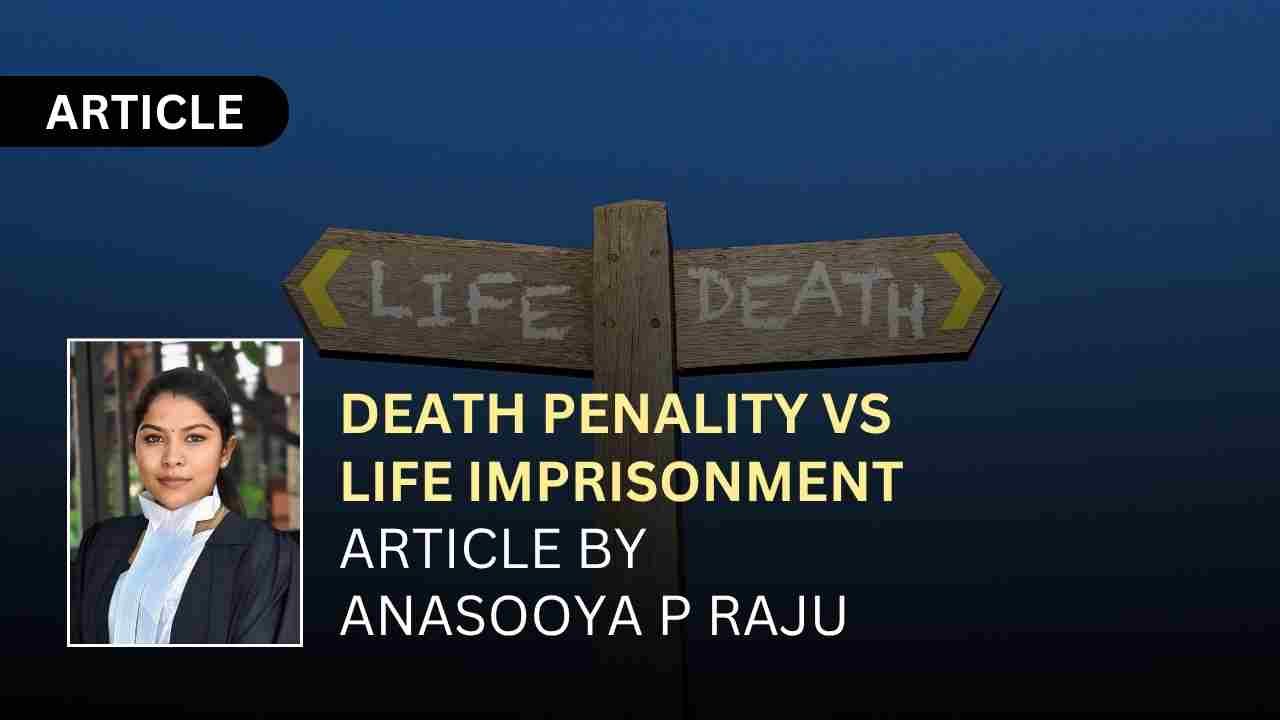A Deep Dive into Justice and Morality
Introduction
The debate between the death penalty and life imprisonment is one of the most enduring and controversial in criminal justice. Both are severe forms of punishment reserved for the most heinous crimes, yet they differ fundamentally in philosophy, application, and consequence.Globally, the trend is moving toward abolition of the death penalty. Over 140 countries have abolished it in law or practice. The United Nations advocates for its global abolition, citing human rights concerns. However, some countries like the United States, China, Iran, and Saudi Arabia continue to use it, though often under increasing scrutiny.
Understanding the Punishments
Death Penalty (Capital Punishment): Involves the state-sanctioned execution of an individual found guilty of a capital crime. Methods vary by country but often include lethal injection, hanging, or shooting.
Life Imprisonment: Entails confining an individual to prison for the remainder of their natural life. In some jurisdictions, life imprisonment may allow for parole after a certain number of years; in others, it means no possibility of release.
Arguments in Favor of the Death Penalty
Deterrence: Proponents argue that the fear of death prevents potential criminals from committing serious crimes like murder or terrorism.
Retribution: The death penalty is seen as a form of just retribution—”an eye for an eye”—ensuring that justice is served for victims and their families.
Cost Efficiency (Debated): Some claim it is more economical to execute a criminal than to house them for life, although this is highly contested due to legal costs.
Closure for Victims’ Families: Execution may offer a sense of finality and justice to grieving families.
Arguments Against the Death Penalty
Irreversibility and Wrongful Convictions: Mistakes in the justice system can lead to innocent people being executed, which is an irreversible act.
No Proven Deterrent Effect: Numerous studies have shown no conclusive evidence that capital punishment deters crime more effectively than life imprisonment.
Moral and Ethical Concerns: Many view the death penalty as inhumane and contrary to the principles of human dignity and rehabilitation.
Discrimination and Inequality: Capital punishment is often disproportionately applied based on race, economic status, or geography.
Arguments in Favor of Life Imprisonment
Possibility of Rehabilitation: Life imprisonment allows time for remorse, reflection, and even reform, particularly for those who may have committed crimes under duress or immaturity.
Avoids Irreversible Errors: Innocent individuals can be exonerated and released if new evidence comes to light.
Ethical Superiority: Seen as a more humane punishment, life imprisonment aligns with global human rights perspectives.
Flexibility in Sentencing: Life sentences can be adjusted based on new laws, behavioral improvements, or judicial review.
Challenges with Life Imprisonment
Cost and Overcrowding: Long-term incarceration is expensive and contributes to prison overcrowding.
Psychological Impact: Spending decades in confinement can lead to severe mental health deterioration, raising ethical concerns.
Perception of Leniency: Some victims’ families feel that life imprisonment does not adequately reflect the severity of the crime.
Conclusion:
The choice between the death penalty and life imprisonment ultimately boils down to a society’s values and its belief in justice, redemption, and human rights. While capital punishment may appeal to a desire for retribution, life imprisonment offers a more humane, albeit imperfect, alternative that maintains the possibility of justice even in the face of judicial error.




